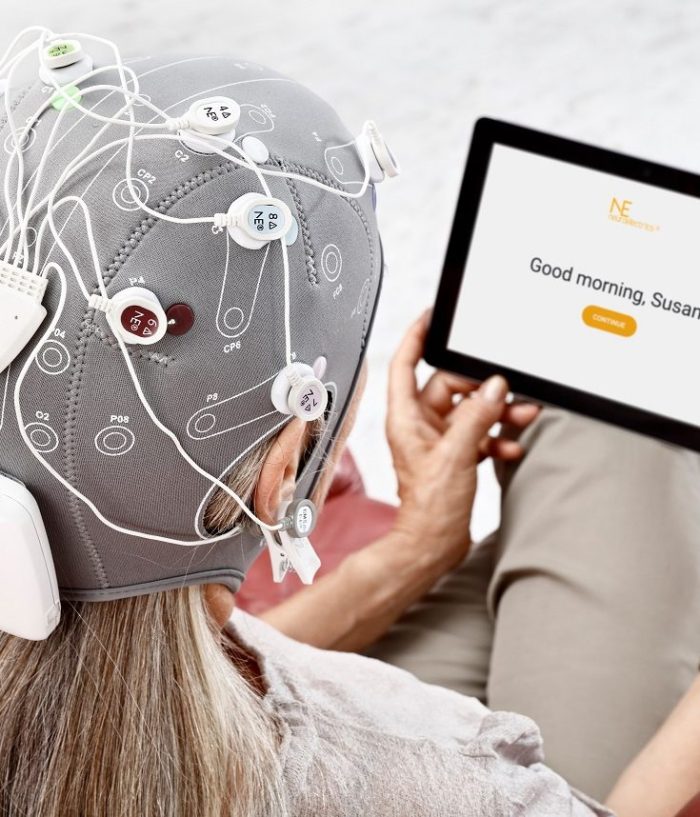FDA greenlights Neuroelectrics to treat patients with Major Depression at home amidst Covid-19 restrictions
At-Home Therapy, Depression, tDCS, No Comments
“We are grateful to the FDA for its fast reaction in COVID times, as a company we are ready to take our platform to patients’ home. Now more than ever telemedicine, brain monitoring and brain stimulation at home is needed, especially for older patients who have even more challenges and restrictions to access clinic or hospital settings”
Ana Maiques, Neuroelectrics CEO
Cambridge, MA, USA and Barcelona, SP, May 15th: Today Neuroelectrics announced that the FDA has approved the Investigational Device Exemption supplemental protocol study submitted by Neuroelectrics to help patients with Major Depression Disorder (MDD) that cannot access their current non-invasive brain stimulation treatment (rTMS* or ECT**) due to COVID-19 related restrictions.
COVID-19 pandemic has made evident the urgent need for a safe, effective, home-based intervention for patients suffering from a MDD episode. Transcranial direct current stimulation (tDCS) is under investigation on whether it can provide a suitable solution. Neuroelectrics proposed a telehealth study leveraging its unique home-based system enabling supervised, caregiver-delivered tDCS for patients with MDD who cannot access their current treatment due to the pandemic restrictions.
The main purpose of the study is to meet patients’ medical needs providing a home-based tDCS intervention to individuals who are suitable candidates for rTMS or ECT but cannot access these therapies due to the COVID-19 pandemic.
The study will also allow to assess the efficacy, acceptability and treatment compliance of Neuroelectrics’ home-based tDCS system for patients with MDD.
The study Principal Investigator will be Alvaro Pascual-Leone, MD, PhD, Professor of Neurology, Harvard Medical School; Senior Scientist, Hinda and Arthur Marcus Institute for Aging Research, Hebrew SeniorLife.
Major depressive disorder (MDD) is highly prevalent and the main cause of global disability worldwide (Kupfer et al., 2012). About 20–40% of patients do not benefit sufficiently from the existing antidepressant interventions, including trials of medication and psychotherapy (Greden, 2001). Pharmacological treatments have limited efficacy, side effects are common (Carvalho et al., 2016), and one-third of patients are medication-resistant failing to achieve remission after using three or more antidepressants (Rush et al., 2006) and experiencing recurrent depressive episodes. (Nemeroff, 2007).
Founded in 2012, Neuroelectrics EEG system (Enobio) received US FDA 510K clearance in May 2017.



